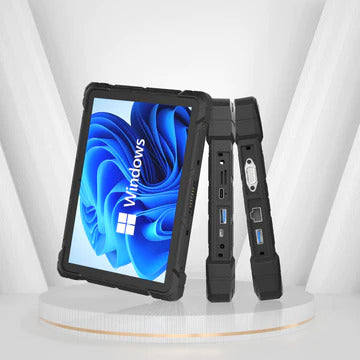In the world of computing, advancements are continuously being made to deliver more powerful, efficient, and reliable devices. One such innovation is the fanless mini PC, a compact yet robust computing solution that offers numerous benefits for various industries and applications. In this article, we will delve into the advantages of using a fanless mini PC, highlighting its power, reliability, and versatility.
- Enhanced Durability:
Fanless mini PCs are specifically designed to withstand harsh environments and demanding conditions. Built with durable materials and enclosures, these mini PCs can handle extreme temperatures, vibrations, dust, and moisture. Their solid-state construction eliminates the risk of fan failure, making them highly reliable and resistant to damage caused by external elements.
- Silent Operation:
Fanless mini PCs are an alternative to conventional computers since they do not require fans for cooling. This is accomplished with the use of passive cooling methods like heat sinks and heat pipes. The lack of fans not only makes the gadget muted but also lessens the likelihood of mechanical failure, extending its useful life.
- Compact and Space-Saving Design:
The compact form factor of fanless mini PCs makes them ideal for space-constrained environments. Their small footprint allows for flexible installation options, such as mounting behind displays or in tight spaces. Whether used in industrial settings, healthcare facilities, or digital signage applications, the compact design of these mini PCs maximizes available space without compromising performance.
- Power Efficiency:
Fanless mini PCs are efficient gadgets since they can run on less electricity. It helps save money on power and makes the world a better place by decreasing energy usage and carbon emissions. Thanks to CPU improvements, these small PCs can provide powerful performance without sacrificing economy.
- Versatile Connectivity Options:
Fanless robust mini PCs, despite their little size, provide an abundance of connectivity choices to fulfill a broad variety of requirements. They can be easily connected to other devices because of their plethora of extra connections, including USB ports, HDMI/DisplayPort outputs, Ethernet connectors, and audio jacks. Because of their adaptability, these small PCs may be used for a broad range of purposes, from digital signage and kiosks to industrial automation and security monitoring.
- Reliability in Critical Applications:
Fanless mini PCs are built to deliver reliable performance in critical applications where downtime is not an option. Their solid-state design eliminates moving parts, reducing the risk of hardware failure and minimizing maintenance requirements. With features like industrial-grade components, wide temperature ranges, and extended product lifecycles, these mini PCs ensure long-term reliability and stable operation even in challenging environments.
- Scalability and Customization:
Fanless robust mini PCs are flexible and may be tailored to meet a variety of needs. These small PCs may be customized to fit the requirements of a wide range of programs because of their upgradable storage, memory, and network interfaces. These micro PCs may be easily modified and prepared for the future by adding features like more storage, specialized I/O ports, and wireless networking.
Overall:
The fanless mini PC represents a powerful and reliable computing solution that is revolutionizing industries across the board. From industrial automation to digital signage, these compact devices offer enhanced durability, silent operation, space-saving design, power efficiency, versatile connectivity, and scalability. With their ability to withstand harsh environments and deliver reliable performance, fanless mini PCs are the go-to choice for applications where performance, reliability, and space optimization are paramount. Embracing these mini PCs unlocks a world of possibilities for businesses and industries seeking compact yet robust computing solutions.



